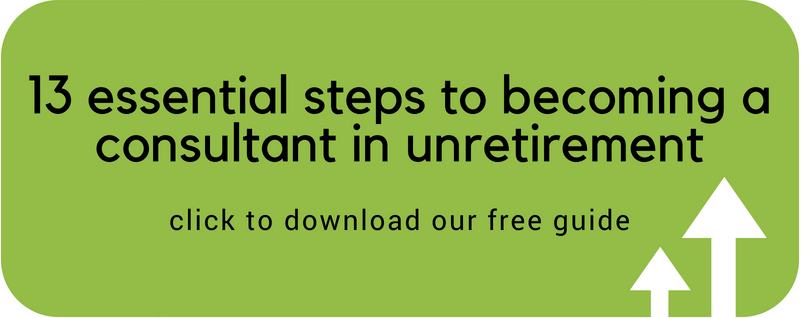Facing boredom in retirement? Let’s get some imagination
7 September 2018 By Victoria Tomlinson

I met a partner at one of the Big Four the other day and he reinforced something we are seeing time and again at Next-Up, the lack of imagination around what people can do after they ‘retire’ or at least leave their professional or corporate life. We think this issue could be key to boredom in retirement.
The Big Four partner I spoke to told me he’d attended a session for eight or so partners to discuss their next steps. The partners went around the room sharing their ideas for what they would do. Apparently it went something like: “Non-exec, non-exec, non-exec, non-exec, golf, non-exec, coach, non-exec, non-exec.” However, when it came down to it, many of these weren’t actually sure they really wanted to be a non-exec but they simply didn’t know what else they could do.
The reality is that we are all going to have to think differently about our working lives and what we do when the full-time stage finishes. It’s time to stop focusing on boredom in retirement, and time to start thinking about what can happen next.

Lynda Gratton, co-author of The 100-Year Life, talks about our “multi-stage lives” so instead of treating retirement like it’s the end of something, treating it like it’s just a different life stage.
In this Radio 4 programme, Gratton talks about the importance of being self-determining.
“Please don’t think that somehow the world is going to solve this problem for you,” she says, identifying the need to take charge instead of allowing other people to make decisions for you. As she explains, “It really requires each of us to be as active as possible.”
Gratton also talks of rethinking when we do different things. She suggests we could take a gap year in your forties and set up a business in your seventies – overturning the traditional way we think of age and what we do at each stage of our lives.
This Forbes piece by Pavel Krapivin moots the idea that the study, work, retire model is broken. He says that training in one field and then having one or two employers for the majority of your working life is a model that is increasingly being challenged.
“When we replace a three-stage life with one of seven or eight stages, the number of ways we can craft our life open up before us.” Krapivin adds, “In a careers sense, it’s likely to yield a tremendous amount of flux as new technologies create jobs we cannot dream of today.”

A blog by executive coach Sarah Tennant points out the potential benefits of a general culture shift towards multi-stage careers. She talks of companies being able to “make the most of a highly-skilled and experienced talent pool, irrespective of age, and gender” and the move towards a more flexible workplace, which will benefit everyone.
However, Tennant points out the need for third-stagers to “mentally step out” and re-define their career and life goals. She talks about taking time to think and take stock of the journey so far, defining new goals, reflecting on personal strengths, exploring all the options (as well as mapping out alternatives and noting obstacles), planning for change and enlisting support. This way, the idea of boredom in retirement is so far down the list it’s not even there.
This need to mentally step out is absolutely crucial. Imagination is paramount when deciding what to do with this period of your life. The traditional retirement rhetoric tells us we should be content with taking it easy and looking back on our career as though it’s far behind us. By taking this story back and redefining it, you can make this career stage the best yet.
If you are looking for ways to spark your imagination, join us at the Next-Up conference in November. Tech entrepreneurs are talking about their businesses – based on the latest trends in big data, augmented virtual reality, voice search and more – and how they are looking for help from an experienced generation. There will be charities looking for help and headhunters talking about the future non-execs and advisers.



